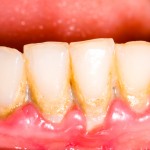
Periodontitis and obesity are two of the commonest chronic disorders in the world. An association between obesity and periodontitis was first found in rats in the 1970s and a number of cross sectional studies have suggested that they may be associated.
The aim of this review was to examine the time-dependent association between obesity and periodontitis and how weight changes may affect the development of periodontitis in the general population by assessing longitudinal and experimental studies that assessed the association among overweight, obesity, weight gain, waist circumference, and periodontitis are reviewed.
Methods
Searches were conducted in the PubMed/Medline and Web of Knowledge databases. Only cohort studies and intervention studies among children, adolescents, and adults published in English were considered. Two reviewers selected studies with a third review arbitrating disagreements. Study quality and grading of the strength of the evidence (grade I [good/strong] to V [not assignable]) was assessed by two researchers using the Quality Criteria Checklist of the Academy of Nutrition and Dietetics. A narrative summary of the findings was presented.
Results
- 13 studies (8 cohorts; 5 clinical trials) were included.
- The 8 cohort studies examined association between overweight/obesity and development of periodontitis.
- 4 trials examined the outcome of non- invasive periodontal treatment (NIPT) between obese and non-obese patients with the other trial investigating NIPT outcome between bariatric surgery patients and controls.
- 3 Cohort studies found a direct association between obesity at baseline and subsequent periodontitis development, and 2 studies found a direct association between overweight and periodontitis development.
- 3 studies found that weight gain was directly associated with development of periodontitis, and men with moderate to large weight gains developed more periodontal disease or alveolar bone loss (ABL) events than those with low weight gain.
- 2 intervention studies on the influence of obesity on periodontal treatment effects found that the response to non-surgical periodontal treatment was better among lean than obese patients; the remaining 3 studies did not report treatment differences between obese and lean participants.
- Among the 8 cohort studies, one study adjusted for C-reactive protein (CRP) and biologic markers of inflammation such as CRP, interleukin-6, and tumor necrosis factor-a, and inflammation markers were analyzed separately in three of the five intervention studies.
Conclusions
The authors concluded:
Evidence from longitudinal studies, particularly those with a follow-up ‡20 years, suggest that overweight, obesity, weight gain, and increased WC may be risk factors for developing periodontitis or worsening with regard to periodontal measures. Results from intervention studies on periodontal clinical response between obese and normal-weight patients undergoing non-surgical periodontal treatment are few, and the evidence for an effect is limited. Inflammation, sex, and SES are likely to play a role in the pathogenesis of obesity and periodontitis. Therefore, more studies focusing on the influence of these factors are required.
Comments
Only two databases were used to identify studies for this review and studies were restricted to those published in English so potentially relevant studies may have been excluded. The authors indicate that they did consider conducting a meta-analysis but did not because of the different measures and cut-offs used to define periodontitis. This variation in classification of periodontal disease is an ongoing issue that will continue to affect reviewers. This reviews authors also highlight two previous systematic reviews (Suvan et al 2011 and Chaffee and Weston 2010 both of which suggest an association but also include data from cross-sectional studies. Recently another review has also been published by Nascimento et al 2015, which we will look at in a future blog.
Links
Keller A, Rohde JF, Raymond K, Heitmann BL. Association between periodontal disease and overweight and obesity: a systematic review. J Periodontol. 2015 Jun;86(6):766-76. doi: 10.1902/jop.2015.140589. Epub 2015 Feb 12. PubMed PMID: 25672656.
Nascimento GG, Leite FR, Do LG, Peres KG, Correa MB, Demarco FF, Peres MA. Is weight gain associated with the incidence of periodontitis? A systematic review and meta-analysis. J Clin Periodontol. 2015 Jun;42(6):495-505. doi: 10.1111/jcpe.12417. Epub 2015 Jun 2. PubMed PMID: 25952821.
Suvan J, D’Aiuto F, Moles DR, Petrie A, Donos N. Association between overweight/obesity and periodontitis in adults. A systematic review. Obes Rev 2011;12:e381-e404.
Chaffee BW, Weston SJ. Association between chronic periodontal disease and obesity: A systematic review and meta-analysis. J Periodontol 2010;81:1708- 1724.

RT @jaapseidell: Associatie tussen obesitas en tandvleesontsteking. Gezamenlijke onderliggende factoren en gedrag. http://t.co/zMcG4Z5Bcr
Periodontal disease and obesity: review suggests an association http://t.co/PgXwHvq6Gq
Obesity a risk factor for periodontal disease? http://t.co/PgXwHvq6Gq
Is periodontal disease and obesity associated? http://t.co/PgXwHvq6Gq
Don’t miss- Periodontitis and obesity: review suggests an association http://t.co/PgXwHvq6Gq
@TheDentalElf But some people suffering from aggressive periodontitis in short time’d lose weight temporary because chewing bread also pain.
[…] Dental Elf- 14th Sep-2015 -Periodontitis and obesity: review suggests an association […]